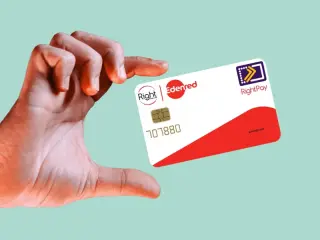
Managing fuel expenses effectively is a key concern for businesses, fleet managers, and individual drivers in the UK. Prepaid fuel cards offer a practical and efficient way to tackle this challenge.
In this guide, we’ll provide a comprehensive overview of prepaid fuel cards, diving into their features, benefits, and how they work. Whether you’re running a business fleet or are a sole trader managing fuel budgets, this guide will help you decide if a prepaid fuel card is the right solution for you.
What are prepaid fuel cards?
Prepaid fuel cards are a financial tool designed to simplify and control fuel expenses. Unlike traditional fuel cards, prepaid fuel cards require you to load funds onto the card in advance.
This eliminates the need for credit checks and prevents the risk of overspending, as you can only use the funds that are preloaded. As a result, prepaid fuel cards are growing in popularity and have become a trusted option for businesses that cannot get credit.
We offer a prepaid fuel card, RightPay, which is widely accepted at over 3,000 petrol stations across the UK. It provides convenience, especially for those who want a straightforward way to manage their fuel budgets.
Our site locator can be used to help you find participating fuel stations.
How do prepaid fuel cards work?
Prepaid fuel cards operate on a simple yet effective system. Here’s how they work:
Loading funds: users deposit a specific amount of money onto the card online with a credit card or by bank transfer.
Fuel purchases: the card can then be used to buy fuel at participating petrol stations.
Tracking spending: each transaction is deducted from the card balance, providing a transparent and easy way to monitor fuel expenses.
Issuing and activating cards
You can get our prepaid fuel card, RightPay, online by completing our quick and simple application process.
Prepaid fuel cards are different to typical fuel cards, as there’s no need for a credit check, making these cards accessible to a broader range of users. Once you receive your card, you’ll need to activate it by topping up your balance. This can be done through an online portal.
Please note that the initial top-up for RightPay customers’ needs to be a minimum of £200. After that, there is no minimum top-up amount. Your first months’ card fee will be deducted from your first top up.
Loading funds and managing balance
Funds can be loaded onto the card by using a credit card or bank transfer. We have a dedicated online account which allows you to check your balance, review transaction history, and reload the card when needed.
This ensures that you have sufficient funds for fuel purchases and helps maintain better control over expenses.
Benefits of prepaid fuel cards
Prepaid fuel cards come with a host of advantages, particularly for businesses and fleet managers looking to streamline operations and sole traders looking to stick to a budget.
Budget control and expense management
One of the main benefits of prepaid fuel cards is the ability to control spending. By loading a predetermined amount onto the card, you can set clear limits on fuel expenses.
This gives you greater control over your fuel expenditure, so you can prevent overspending and misuse.
For additional fuel card security, transactions are PIN-protected, and your card only uses the funds you’ve topped up.
Discounts and offers
With the RightPay fuel card, you’ll pay a fixed weekly price for diesel which can save you money at the pump. You’ll always know what you’re paying as you’ll receive price notifications via text or email.
Another benefit of using a prepaid fuel card is that you won’t pay any interest fees. This can reduce your expenses compared to using a credit card for your fuel purchases.
Who can use prepaid fuel cards?
Prepaid fuel cards are versatile and can be used by businesses of all shapes and sizes.
Businesses and fleet managers
For businesses, prepaid fuel cards simplify the management of fuel expenses across multiple vehicles.
Instead of juggling receipts and expense reports, fleet managers can use detailed reports to monitor spending and ensure compliance with budgets. This reduces administrative overhead and helps improve overall operational efficiency.
Sole traders
Sole traders can also benefit greatly from prepaid fuel cards. By setting a fixed budget, you can avoid unexpected expenses and have better control over your finances.
These cards are especially useful for those who want to track their fuel spending without relying on credit cards or traditional billing methods.
Considerations and limitations
While prepaid fuel cards offer numerous benefits, there are a few factors to keep in mind before committing to one.
Acceptance may be limited
Not all petrol stations accept prepaid fuel cards. It’s important to check the network of participating stations to ensure that it meets your needs. Having a backup payment method for emergencies is also a good idea.
Upfront payment required
Unlike other fuel cards, prepaid fuel cards require funds to be loaded in advance. This means you need to plan how much you’ll need on each card and remember to top up accordingly. For those who prefer post-purchase billing, this might be less convenient.
Prepaid fuel cards provide a practical solution for managing fuel expenses, offering benefits like budget control, no credit checks, and competitive prices. They’re particularly valuable for businesses looking to streamline fleet management.
By understanding how prepaid fuel cards work and their advantages, you can make an informed decision on whether they’re the right fit for your needs. With the potential to simplify fuel purchasing and enhance financial management, prepaid fuel cards are a smart choice for any business looking to take control of their fuel expenses.
Apply for the RightPay fuel card online or contact our team to discuss your options further.




